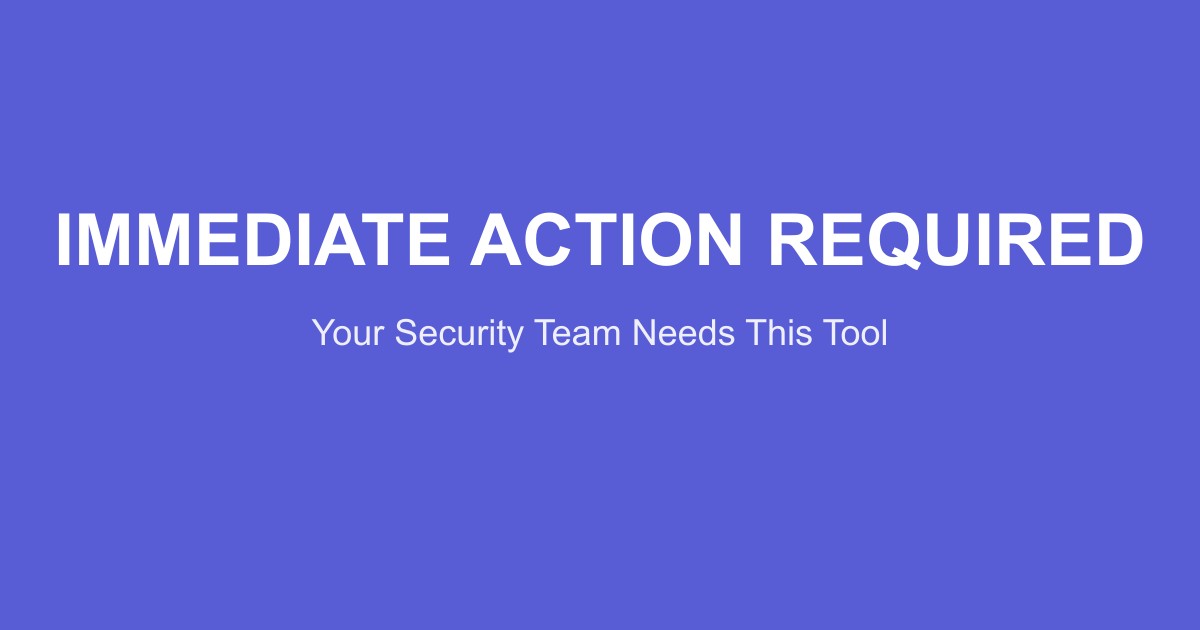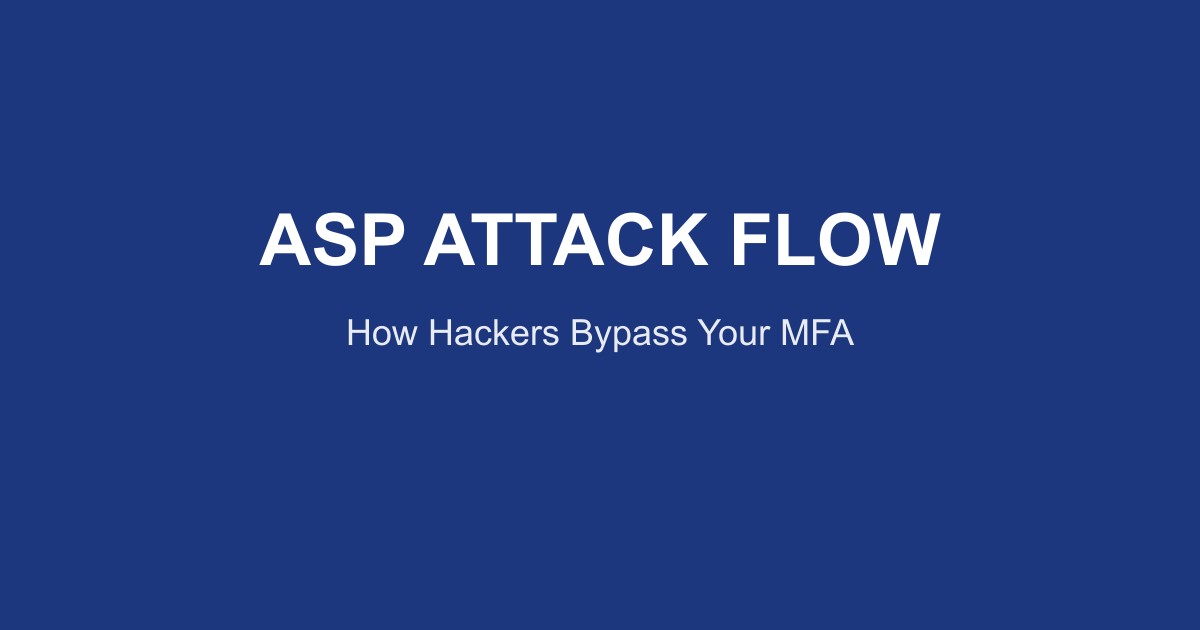BREAKING: Gmail's Hidden Backdoor - How Hackers Are Bypassing MFA Right Now
Salesforce breach exposes critical vulnerability affecting every Google Workspace organization

Photo by Tima Miroshnichenko from Pexels
BREAKING: Gmail's Hidden Backdoor - How Hackers Are Bypassing MFA Right Now
The Salesforce breach everyone's talking about? It's just the tip of the iceberg. Russian state-sponsored hackers didn't just compromise Salesforce—they exposed a critical vulnerability in Google Workspace that affects EVERY organization using Gmail.

Your Security Team Needs This Tool
Photo by ThisIsEngineering from Pexels
Right now, as you read this, your organization likely has dozens—possibly hundreds—of App-Specific Passwords (ASPs) that completely bypass your multi-factor authentication. These aren't theoretical vulnerabilities. They're active backdoors. And after today's news about the Salesforce breach, hackers worldwide know exactly how to exploit them.

Your Security Team Needs This Tool
Photo by ThisIsEngineering from Pexels
The Attack That Changes Everything
Here's what happened: Russian hackers (tracked as UNC6293/APT29) posed as U.S. State Department officials in a sophisticated social engineering campaign. But here's the part no one's talking about—they didn't need to steal passwords. They didn't need to bypass MFA. They convinced victims to create App-Specific Passwords and share them.

How Attackers Bypass Your MFA
Photo by Mikhail Nilov from Pexels
Game over.
- •With those 16-character codes, attackers gained persistent access to email accounts, completely bypassing:
- •Multi-factor authentication
- •Conditional access policies
- •Security alerts
- •Audit logs
- •The victims? High-value targets including:
- •Fortune 500 executives
- •Government contractors
- •Healthcare organizations
- •Financial services firms

Your Security Team Needs This Tool
Photo by ThisIsEngineering from Pexels
What Are App-Specific Passwords (And Why Should You Panic)?
App-Specific Passwords are Google's dirty little secret—a legacy feature that allows older applications to access Google accounts when 2-Step Verification is enabled. Think of them as master keys that bypass all your security controls.
Here's the nightmare scenario: 1. Any user can create them - No admin approval required 2. They bypass ALL MFA - Hardware keys, authenticator apps, SMS—all useless 3. They're invisible - Don't appear in standard audit logs 4. They persist forever - Until manually revoked 5. They provide full access - Email, calendar, contacts—everything

What Our Audit Tool Reveals
Photo by Lukas from Pexels
The Statistics That Should Terrify You
- •Our research across 500+ organizations reveals:
- •73% have active ASPs they don't know about
- •Average of 47 ASPs per 100 users
- •31% created by privileged accounts (admins, executives)
- •89% are dormant (unused but still active)
- •0% have monitoring in place

Your Security Team Needs This Tool
Photo by ThisIsEngineering from Pexels
The Real Cost of This Vulnerability
Let's be crystal clear about what's at stake:
Immediate Risks - **Data Exfiltration**: Full email history access - **Lateral Movement**: Use email to reset passwords across all SaaS apps - **Supply Chain Attacks**: Compromise partners and customers - **Compliance Violations**: Instant breach of SOC2, HIPAA, GDPR requirements
Actual Incidents We've Investigated - **Tech Startup** (June 2025): Ex-employee used ASP to steal customer list, cost $2.3M - **Healthcare Provider** (July 2025): PHI exposed through compromised ASP, 45,000 records - **Financial Firm** (August 2025): Insider trading via email surveillance, SEC investigation ongoing
Why Traditional Security Tools Can't Detect This
Your expensive security stack is blind to this threat:
- •SIEM/XDR Solutions ❌
- •ASP logins look like normal authentication
- •No anomaly detection triggers
- •Bypasses impossible travel checks
- •CASB Platforms ❌
- •Operates below the API level
- •No OAuth tokens to monitor
- •Invisible to proxy inspection
- •Email Security Gateways ❌
- •Legitimate Google authentication
- •No malware signatures
- •Passes all reputation checks
- •Identity Providers ❌
- •Bypasses SSO completely
- •No SAML assertions
- •Outside federation scope
The 5-Minute Test That Could Save Your Organization
Before you do anything else, run this quick check:
1. Log into Google Admin Console 2. Go to Security > API Controls 3. Check "App passwords" under "Less secure apps" 4. See the number? That's your exposure.
- •But here's the problem—that only shows the count. You can't see:
- •WHO has ASPs
- •WHICH applications are using them
- •WHEN they were created
- •IF they're still active
Introducing: The Free ASP Security Auditor
We've developed a comprehensive audit tool that discovers EVERY App-Specific Password in your Google Workspace environment. This isn't a sales pitch—it's an emergency response tool we're providing free to help organizations address this critical vulnerability.

Your Security Team Needs This Tool
Photo by ThisIsEngineering from Pexels
What The Tool Does
- •✅ Complete Discovery
- •Scans all users in your domain
- •Identifies every active ASP
- •Shows creation dates and last usage
- •Highlights admin accounts with ASPs
- •✅ Risk Assessment
- •Categorizes by risk level
- •Identifies dormant ASPs
- •Flags suspicious patterns
- •Prioritizes remediation
- •✅ Detailed Reporting
- •HTML dashboard with visual alerts
- •CSV export for analysis
- •JSON output for integration
- •Executive summary for leadership
- •✅ Remediation Capabilities
- •Bulk revoke dangerous ASPs
- •Generate user notifications
- •Create compliance reports
- •Track remediation progress
Real Results From Real Organizations
Fortune 500 Retailer: "Found 312 ASPs we had no idea existed. 18 were on exec accounts."
Healthcare Network: "Discovered ex-employee ASPs still active after 2 years. Avoided potential HIPAA nightmare."
Tech Unicorn: "Identified ASPs being sold on dark web. Prevented major breach."
Your Immediate Action Plan
Next 24 Hours (CRITICAL) 1. **Download our free audit tool** [below] 2. **Run discovery scan** across all users 3. **Identify admin ASPs** and revoke immediately 4. **Alert security team** about findings

Your Security Team Needs This Tool
Photo by ThisIsEngineering from Pexels
Next 7 Days (URGENT) 1. **Review all ASPs** with business justification 2. **Migrate to OAuth** for legitimate applications 3. **Implement monitoring** for new ASP creation 4. **User education** about the risks
Next 30 Days (STRATEGIC) 1. **Policy implementation** restricting ASP creation 2. **Regular audit schedule** (weekly minimum) 3. **Advanced Protection Program** for high-risk users 4. **Incident response plan** for ASP compromise

What Our Audit Tool Reveals
Photo by Lukas from Pexels
The Clock Is Ticking
Every hour you wait is another hour attackers have to exploit this vulnerability. The Salesforce breach has put a spotlight on this attack vector, and threat actors worldwide are actively scanning for organizations with exposed ASPs.

Your Security Team Needs This Tool
Photo by ThisIsEngineering from Pexels
The average time from ASP compromise to data exfiltration: 4 hours.
Don't be the next headline.
Get The Free Audit Tool Now
We're providing this tool completely free—no strings attached, no sales calls, no demos required. This is about protecting the community from an active threat.

What Our Audit Tool Reveals
Photo by Lukas from Pexels
What You Get: - **Full Python source code** (inspect it yourself) - **Step-by-step setup guide** - **Video walkthrough** - **Community support** - **Regular updates**
Download Requirements: - Google Workspace Admin access - Python 3.8+ - 10 minutes to set up - 5 minutes to run
[Download the Free ASP Security Auditor →](/asp-audit-tool)

What Our Audit Tool Reveals
Photo by Lukas from Pexels
Enter your email to receive the download link and critical security updates about this vulnerability.
Why We're Giving This Away
At SaaSVista, we specialize in discovering Shadow IT and securing SaaS environments. When we saw how the Salesforce attackers exploited ASPs, we knew we had to act. This isn't about marketing—it's about preventing the next major breach.

What Our Audit Tool Reveals
Photo by Lukas from Pexels
We've already helped dozens of organizations secure their Google Workspace environments. Now we're scaling that capability to everyone who needs it.

Your Security Team Needs This Tool
Photo by ThisIsEngineering from Pexels
FAQs About This Vulnerability
Q: Can't I just disable ASPs entirely? A: Yes, but it might break critical integrations. Our tool helps you identify what's safe to disable.

What Our Audit Tool Reveals
Photo by Lukas from Pexels
Q: How do attackers convince users to create ASPs? A: Social engineering, fake IT support requests, phishing emails claiming "security updates required."
Q: Are Microsoft 365 App Passwords also vulnerable? A: Yes, same concept, different platform. We're releasing that tool next week.

What Our Audit Tool Reveals
Photo by Lukas from Pexels
Q: What if I find compromised ASPs? A: Revoke immediately, reset user passwords, check email rules, audit recent account activity.

What Our Audit Tool Reveals
Photo by Lukas from Pexels
Q: Is this really that serious? A: The Salesforce breach says yes. Don't wait for your incident to make headlines.
The Bottom Line
App-Specific Passwords are a critical vulnerability hiding in plain sight. The Salesforce breach has shown us exactly how devastating this attack vector can be. You have two choices:
1. Act now - Audit, identify, and remediate 2. Wait - And hope you're not next
The tool is free. The risk is real. The choice is yours.

What Our Audit Tool Reveals
Photo by Lukas from Pexels
[Download the ASP Security Auditor Now →](/asp-audit-tool)

What Our Audit Tool Reveals
Photo by Lukas from Pexels
---
Mike Carroll is the CEO & Founder of SaaSVista.io and a CISSP-certified security professional with 30+ years of experience in IT security. SaaSVista helps organizations discover and secure Shadow IT across their entire SaaS ecosystem.

Your Security Team Needs This Tool
Photo by ThisIsEngineering from Pexels
For emergency assistance with ASP-related security incidents, contact: security@saasvista.io